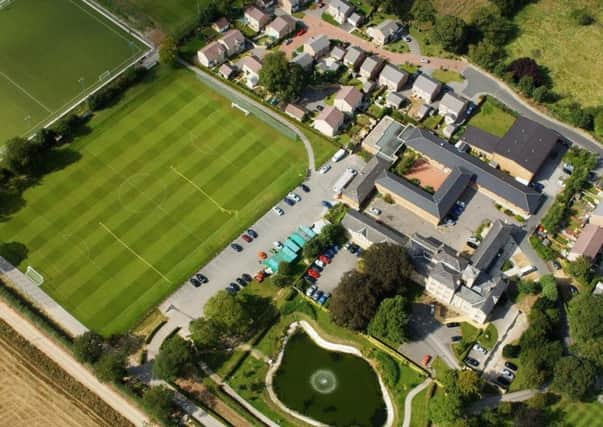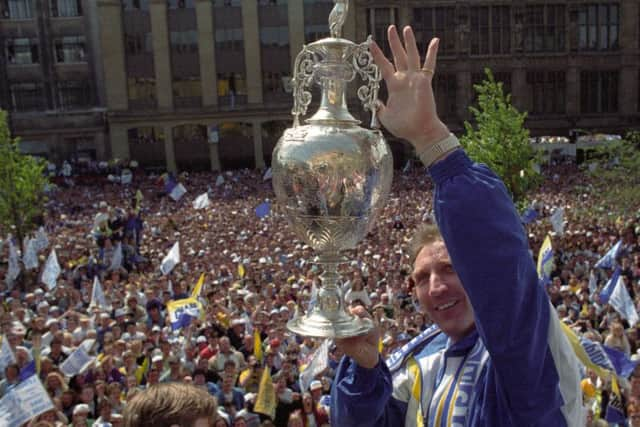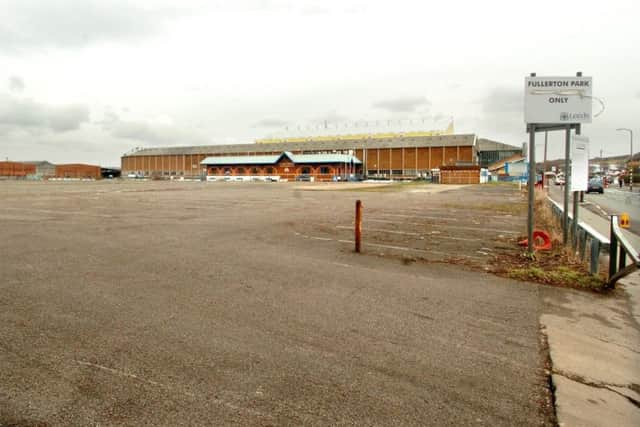Leeds United: New facilities are a step closer to home


It occurs, though, that Thorp Arch is approaching its 25th year and, for a variety of reasons, is no longer the benchmark complex it used to be. Training grounds are catching up or have overtaken it, a wall of investment in which Manchester City’s Eastlands development supersedes everything. The proposals put forward on Tuesday by Leeds City Council for the regeneration of land around Elland Road has shades of Eastlands and its executive report is explicit in saying that Leeds are ready to embrace a new city-centre base.
Thorp Arch has suffered in the Football League years, denied significant upgrades until GFH installed drainage in 2013 and United chairman Andrea Radrizzani threw money at cosmetic improvements this summer, but the club’s rationale for relocating is more nuanced. According to the council’s report, Leeds see a training base near Wetherby – almost 20 miles outside the city – as “a barrier” to developing “the best of Leeds’ inner-city young talent” and the cause of a “disconnect between the first team and the community they represent.”
Advertisement
Hide AdAdvertisement
Hide AdNo less significantly, Thorp Arch is a rented facility and has been since 2004 when Leeds, after relegation from the Premier League, raised £4.2m by selling it. By the end of their lease in 2029 the club would be paying over £1m a year to use the complex, owing to a deal which increases their rent annually. The current cost is around £700,000.


The property belongs to Jacob Adler, the Manchester business who sold Elland Road back to Leeds and Radrizzani for £20m in June. Adler relinquished the stadium with reluctance, challenging the legality of Leeds’ buy-back clause, but was powerless to prevent Radrizzani’s purchase. Thorp Arch was previously subject to a buy-back provision but only until 2009 and Leeds’ failure to raise £6m before its expiry tied the hands of future owners. The land is worth significantly more on the open market and Adler is under no obligation to sell. At present Leeds’ academy holds category two status, the second-highest grade under the Premier League’s Elite Player Performance Plan (EPPP), and the council’s report states that the cost of leasing Thorp Arch leaves the club “unable to deliver new training facilities to category one status.” Before relocating, Leeds would need to find a way of breaking their binding arrangement with Adler, something which is understood to have been tentatively discussed while Radrizzani was in the process of buying Elland Road. The plush grass of Thorp Arch might look ripe for re-development but the playing fields are protected by Sport England and the council says it would declare the site Green Belt land if United decide to leave.
Two areas in central Leeds have been earmarked for redevelopment: the former site of Matthew Murray High School in Holbeck, which closed in 2006 and has been empty since the school’s demolition, and Fullarton Park next to Elland Road. Fullerton Park served for years as Leeds’ training ground, prior to the opening of Thorp Arch in 1994.
United want the Matthew Murray site to house a new training complex for their first-team and academy squads, bringing their youth development scheme up to scratch and creating a “world class, state of the art category 1 facility”. Their stated aim implies that they are planning a long-term commitment to academy football and will avoid following Huddersfield Town or Brentford in disbanding lower age groups. Radrizzani said at the time of his buy-out of former Leeds owner Massimo Cellino in May that he aimed to improve the landscape around the club’s stadium as part of a scheme he called ‘Elland Road 2020’. He admitted then that leaving Thorp Arch might be necessary and council report talks of United establishing “a brand and a business model that can sustain top-eight Premier League finishes for the long term.” Among the intended facilities is a dedicated matchday pitch for their junior sides.
Advertisement
Hide AdAdvertisement
Hide AdThe proposal for Fullerton Park involves the creation of a ‘community sports village’, providing a base for the Leeds United Foundation, United’s charitable arm, and facilities for week-night training. The council wants additional indoor facilities to help “reach across other sporting codes...including rugby as well as providing for local basketball and netball teams.”


Its executive report reflects that in a decade of regeneration in Leeds, United have “been in a state of flux”. The council says the club’s stagnant state has “undoubtedly negatively impacted global awareness for the city, international inward investment for the region and ultimately civic pride.” Leeds for their part believe the Elland Road site is “not fitting of a Premier League stadium” and of no commercial or social use outside of match days. It suits both sides to consider ways to overhaul the area. The project, should it go ahead, is a major undertaking but the council wants to deliver both a new training ground and community sports village by 2020. It is proposing the arrangement of a 99-year lease with Leeds for both facilities.
The report does not touch on the subject of funding and there are other complications. Councillors in the Holbeck ward favour a sale of the Matthew Murray site for private housing. The construction of a training ground there would see Leeds acquire two playing fields from Ingram Road Primary School, though the council insists the school is “supportive” of the plan and “believe there to be benefits to them.”
Concerns have also been raised about parking and transport infrastructure and the report called for a strategy which would “need to be agreed with key stakeholders to include the police, local residents and businesses.” The council’s board will vote next Wednesday, October 18, on whether to approve the recommendations and open formal discussions with United.